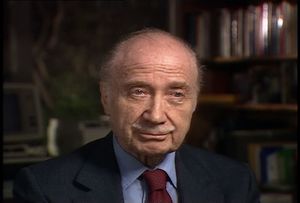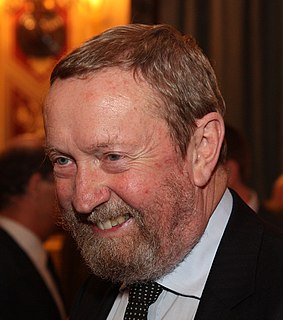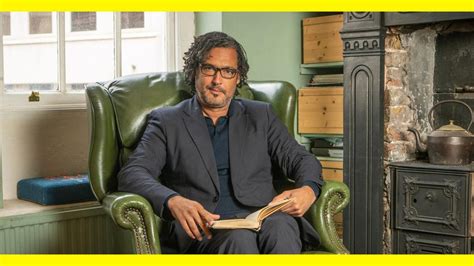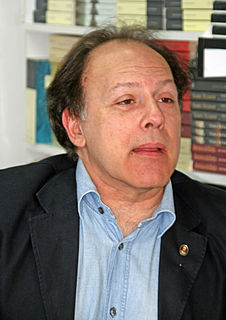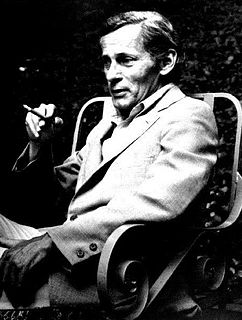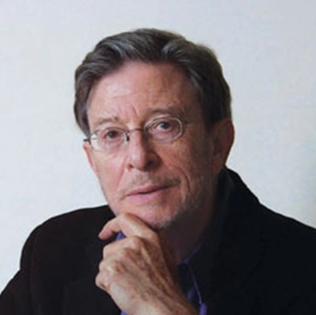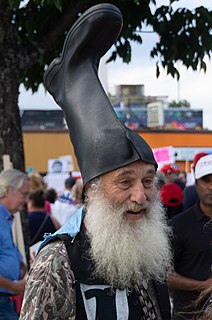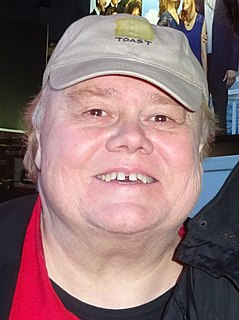Top 453 Translated Quotes & Sayings - Page 7
Explore popular Translated quotes.
Last updated on April 21, 2025.
My first book published in France was translated and titled Exercices d'Attente in 1972. It was a collection of short works written and published in Romania. In 1973 I was ready to publish the novel Arpièges, which I had started writing in Romanian and of which I had published some fragments under the title Vain Art of the Fugue. Some years later, I finished Necessary Marriage.
I had been reading about [John] Calvin for years and had been studying the English Renaissance for many more years, and it had never occurred to me to think of them together. I learned that Calvin was the most widely read writer in England in Shakespeare's lifetime. He was translated and published in many editions.
People are certainly impressed by the aura of creative power which a writer may wear, but can easily demolish it with a few well-chosen questions. Bob Shaw has observed that the deadliest questions usually come as a pair: "Have you published anything?" - loosely translated as: I've never heard of you - and "What name do you write under?" - loosely translatable as: I've definitely never heard of you.
I was a professional chess player in Romania, but only a small-time master. When I came to France, I continued playing chess for many years: I played tournaments in numerous countries with mixed results. I wrote and published a book - La Défense Alekhine and translated two others from Russian. I taught chess in schools; I earned more money through chess than through literature.
So - our readiness to meet and defeat this kind of possible attack is forced upon us, both as a potent preventive of actual war and to insure survival in event of attack. This alertness to danger has to be translated into specific policies and activities in the several parts of the world where our rights - our way of life - can be seriously damaged. Work of this kind occupies my days and nights.
From the Latin word "imponere", base of the obsolete English "impone" and translated as "impress" in modern English, Nordic hackers have coined the terms "imponator" (a device that does nothing but impress bystanders, referred to as the "imponator effect") and "imponade" (that "goo" that fills you as you get impressed with something - from "marmelade", often referred as "full of imponade", always ironic).
What is commonly honored with the name of Friendship is no very profound or powerful instinct. Men do not, after all, love their Friends greatly. I do not often see the farmers made seers and wise to the verge of insanity by their Friendship for one another. They are not often transfigured and translated by love in each other's presence. I do not observe them purified, refined, and elevated by the love of a man.
The entire principle of a blind taste test was ridiculous. They shouldn't have cared so much that they were losing blind taste tests with old Coke, and we shouldn't at all be surprised that Pepsi's dominance in blind taste tests never translated to much in the real world. Why not? Because in the real world, no one ever drinks Coca-Cola blind.
A written word is the choicest of relics. It is something at once more intimate with us and more universal than any other work of art. It is the work of art nearest to life itself. It may be translated into every language, and not only be read but actually breathed from all human lips; -- not be represented on canvas or in marble only, but be carved out of the breath of life itself.
Ideas come from the Earth. They come from every human experience that you’ve either witnessed or have heard about, translated into your brain in your own sense of dialogue, in your own language form. Ideas are born from what is smelled, heard, seen, experienced, felt, emotionalized. Ideas are probably in the air, like little tiny items of ozone.
Poetry cannot be translated; and, therefore, it is the poets that preserve the languages; for we would not be at the trouble to learn a language if we could have all that is written in it just as well in a translation. But as the beauties of poetry cannot be preserved in any language except that in which it was originally written, we learn the language.
Translated literature can be fascinating. There's something so intriguing about reading the text second hand - a piece of prose that has already been through an extra filter, another consciousness, in the guise of the translator. Some of my favorite writers who have written in English were doing so without English being their first language, so there's a sense of distance or of distortion there, too. Conrad. Nabokov. These writers were employing English in interesting ways.
To all appearances the artist acts like a mediumistic being who, from the labyrinth beyond time and space, seeks his way out to a clearing. If we give the attributes of a medium to the artist, we must then deny him the state of consciousness on the aesthetic plane about what he is doing or why he is doing it. All this decisions in the artistic execution of the work rest with pure intuition and cannot be translated into a self-analysis, spoken or written, or even thought out.
I find that readers are very interested in how things are translated. I just turned in the first part of this father-son Odyssey, and there is a part when I digress and explain that the name Odysseus is related to the word for pain. Like "-odyne" in the word "anodyne," pain. It's the same, "-odyne" as in Odysseus. He's the man who both suffers endlessly, in trying to get home, but also inflicts a lot of suffering on everyone he visits.
As the wealthiest country with all the blessings that we have, do we have an obligation to help the outside world? I think we do, as we have an obligation to help everyone within our own borders. The problem is that this automatically gets translated into: "What's the point of having a huge military if we can't bomb people?" That's the problem that I have. Our foreign policy is essentially our defense policy.
We must contemplate some extremely unpleasant possibilities, just because we want to avoid them and achieve something better. Nobody, however, likes to think about anything unpleasant, even to avoid it. And so the crucial problem of thermonuclear war is frequently dispatched with the label 'War is unthinkable' -- which, translated freely, means we don't want to think about it.
It is my mind, with its store of images, that gives the world color and sound; and that supremely real and rational certainty which I can "experience" is, in its most simple form, an exceedingly complicated structure of mental images. Thus there is, in a certain sense, nothing that is directly experienced except the mind itself. Everything is mediated through the mind, translated, filtered, allegorized, twisted, even falsified by it. We are . . . enveloped in a cloud of changing and endlessly shifting images.
Balanced, sensible nutrition: eat food, not too much, mostly plants, a healthy diet ala Michael Pollan, modern physical activity on a daily basis, modest weight loss - translated into a 58% reduction in the occurrence of diabetes. A clear indication of the power of lifestyle over health. The challenge now is the development of the community-based programs that will translate what we learned in the diabetes prevention program and put it to work in every town in America.
The word translated, koan, it means a problem. But it's a very special problem. And to strip it down to the way it works, you are given a problem which has no rational solution. There is a contradiction built into it. One standard - one is this is the sound of two hands clapping. What is the sound of one hand clapping? And so on. All right, so the first thing is that it brings your rational mind to an impasse.
The onset of more severe climate impacts overseas may also open up temporary opportunities, or 'policy windows.' These would allow legislators the licence to take specific bold actions which they ordinarily believe would not otherwise be possible or politically acceptable...In effect, envisaged solutions can become rapidly translated into practical options for action following a major disaster or near-miss.
Well, I think that there's a clear record, I worked with Ronald Reagan in the early '80s and his recovery program translated into today's population of about 25 million new jobs in a seven-year period. As Speaker of the House, I worked with President Clinton and he followed with a very similar plan. And we ended up with about 11 million new jobs in a four-year period.
Over the years since I became a Christian, I have always deliberately explained that I have 'accepted Jesus Christ.' These words are invariably translated into 'Colson's professed religious experience.' I discovered that one major U.S. daily, as a matter of policy, will not print the two words Jesus Christ together; when combined, the editor says, it represents an editorial judgment.
The deeper we grow in the Spirit of Jesus Christ, the poorer we become - the more we realize that everything in life is a gift. The tenor of our lives becomes one of humble and joyful thanksgiving. Awareness of our poverty and ineptitude causes us to rejoice in the gift of being called out of darkness into wondrous light and translated into the kingdom of God's beloved Son.
Home to me is the world because my books have been translated into more than 30 languages. People feel they know me and the minute they talk about my life or books I feel at home. Home is where you are appreciated, safe and protected, creative, and where you are loved – not where you are put in prison.
The Saga of Dharmapuri is one of the great works of modern Indian literature. (...) Set against Vijayan's heroic and scatological Candide -- originally written in Malayalam and finely translated into English by the author -- the timidity of our own English talent for political satire is embarrassingly laid bare. For this is dangerous stuff, and cut close to the bone. (...) Fiercest of all is Vijayan's Voltairean recoil from Indian cringing to power.
The truth never shines forth, as the saying goes, because the only truth is that which is known to no one and which remains untransmitted, that which is not translated into words or images, that which remains concealed and unverified, which is perhaps why we do recount so much or even everything, to make sure that nothing has ever really happened, not once it's been told.
When he served in China during World War II, [Ho Chi Minh] learned about Mao Zedong's tactics of guerrilla war against the Japanese (and later against Chiang Kai-shek's forces), and he translated some of Mao's works into Vietnamese. But it is clear that his own ideas on how to counter the enemy ran along the same lines.
He was doing missionary work. But from the outset he had little success in convincing his charges of their responsibility for a sin committed at the beginning of creation, one which, as they understood it, they were ready and capable (indeed, they carried charms to assure it) of duplicating themselves. He did no better convincing them that a man had died on a tree to save them all: an act which one old Indian, if Gwyon had translated correctly, regarded as "rank presumption".
What profit is there in agreeing that universal friendship is good, and talking of the solidarity of the human race as a grand ideal? Unless these thoughts are translated into the world of action, they are useless. The wrong in the world continues to exist just because people only talk of their ideals, and do not strive to put them into practice. If actions took the place of words, the world's misery would very soon be changed into comfort.
Mikhail Gorbachev's historic leadership, which transformed Russia and international relations, cannot be fully understood without the diary-memoir of Anatoly Chernyaev, one of his most important advisers and closest confidants. Splendidly translated, edited, and introduced by Robert English and Elizabeth Tucker, his Six Years with Gorbachev is now available to everyone who wants to comprehend those final momentous events of the twentieth century.
I don't think we in Ireland have to follow slavishly what other countries have done. Ireland has its own strengths - in family life, in the local community, in the concept of meitheal, a very traditional form of cooperation in rural Ireland. Three or four or five neighbors get together, exchanging labor, farm equipment, and so on. There are strong solidarity overtones. That tradition is being translated today into community self-development.
Wait." "Stop?" I bit my lip and nodded. "Stop everything, or just go no further?" "Just...just no further." "Done." He gathered me into his arms and kissed me, one hand tangled in my hair and the other one caressing down my back, our hearts pulsing out a cadence that the musician in me translated into a concert of lust.
I don't speak any languages well enough to make an expert assessment on writing in translation, but since I'm interested in awkwardness in prose, I find I like the way translated texts can sometimes acquire awkwardness in the process of translation. There's a discordance translation can create which I think is sometimes seen as a weakness but which I think can be a really interesting aspect of the text.
If melodrama is the quintessence of drama, farce is the quintessence of theatre. Melodrama is written. A moving image of the worldis provided by a writer. Farce is acted. The writer's contribution seems not only absorbed but translated.... One cannot imagine melodrama being improvised. The improvised drama was pre-eminently farce.
If a novel is written in a certain language with certain characters from a particular community and the story is very good or illuminating, then that work is translated into the language of another community - then they begin to see through their language that the problems described there are the same as the problems they are having. They can identify with characters from another language group.
Well, in regards to surfing, I’ve learned that there is always another wave coming. Translated that means there is always tomorrow. No matter how badly you get caught inside, if you can just hang in there and keep paddling, the set is going to pass and there will be a lull afterwards. So don’t give up, just take your pounding, wait until the set passes, then make your move.
["All the paths of the Lord are mercy and truth unto such as keep his covenant."] The original Hebrew word that has been translated "paths" means "well-worn roads' or "wheel tracks," such ruts as wagons make when they go down our green roads in wet weather and sink in up to the axles. God's ways are at times like heavy wagon tracks that cut deep into our souls, yet all of them are merciful.
The popularity of disaster movies expresses a collective perception of a world threatened by irresistible and unforeseen forces which nevertheless are thwarted at the last moment. Their thinly veiled symbolic meaning might be translated thus: We are innocent of wrongdoing. We are attacked by unforeseeable forces come to harm us. We are, thus, innocent even of negligence. Though those forces are insuperable, chance will come to our aid and we shall emerge victorious.
Only those are called liberal or free which are concerned with knowledge; those which are concerned with utilitarian ends... are called servile...The question is... can man develop to the full as a functionary and a worker and nothing else; can a full human existence be contained within an exclusively workaday existence? Stated differently and translated back into our terms: is there such a thing as a liberal art?
There were only 75 people in my graduating class at the school I attended in Hannah, S.C. It was a small school and that translated into not a lot of opportunities when it came to music. We had academic and sports programs but we never had a consistent music program. We would have a band one year, and a chorus one year, but nothing ever lasted.
There is no gene "for" such unambiguous bits of morphology as your left kneecap or your fingernail. [...] Hundreds of genes contribute to the building of most body parts and their action is channeled through a kaleidoscopic series of environmental influences: embryonic and postnatal, internal and external. Parts are not translated genes, and selection doesn't even work directly on parts.
There is no figure who had more of an influence, no person had more of an influence on the intellectuals behind the Iron Curtain than Friedrich Hayek. His books were translated and published by the underground and black market editions, read widely, and undoubtedly influenced the climate of opinion that ultimately brought about the collapse of the Soviet Union.
You ask me where I get my ideas. That I cannot tell you with certainty. They come unsummoned, directly, indirectly - I could seize them with my hands - out in the open air, in the woods, while walking, in the silence of the nights, at dawn, excited by moods which are translated by the poet into words, by me into tones that sound and roar and storm about me till I have set them down in notes.
Nature herself has not provided the most graceful end for her creatures. What becomes of all these birds that people the air and forest for our solacement? The sparrow seems always chipper, never infirm. We do not see their bodies lie about. Yet there is a tragedy at the end of each one of their lives. They must perish miserably; not one of them is translated. True, "not a sparrow falleth to the ground without our Heavenly Father's knowledge," but they do fall, nevertheless.
Then he read the words of the scroll slowly, first in Japanese and then carefully translated into English: 'There is really nothing you must be. And there is nothing you must do. There is really nothing you must have. And there is nothing you must know. There is really nothing you must become. However. It helps to understand that fire burns, and when it rains, the earth gets wet. . . .' 'Whatever, there are consequences. Nobody is exempt,' said the master.
I've scrubbed many, many landmarks. I scrubbed the Kremlin back in '98. We had a mandatory-toothbrushing parade; we had the text of the mandatory-toothbrush law translated into Russian. And we had like 30 Russians; we had musicians; we had the giant toothbrushes. The police came and told us to stop, and we stopped.
We tried to make it more than just a cartoon. It was a cartoon, but we tried to make it more than it was to begin with. And I have 300,000 followers from Turkey, Romania, Poland, and places over there that love Life With Louie, where it was translated into their language. They love it. They are absolutely in love with it. And it just goes to show you: no matter where you go, it's always about family.
Written on the body is a secret code only visible in certain lights: the accumulations of a lifetime gather there. In places the palimpsest is so heavily worked that the letters feel like Braille. I like to keep my body rolled up away from prying eyes, never unfold too much, or tell the whole story. I didn't know that Louise would have reading hands. She has translated me into her own book.
I read somewhere that if you translated all the gadgets and technology in our houses to make our lives easier and save time, each of us would have the equivalent of 300 slaves, in Roman times. We have these incredible luxuries, incredible power and privileges, but we seem to be squandering them on little plastic spoons to stir our coffee with, that'll last two seconds in our lives.
When my works are being translated, I always get this question from my translators: Up or down? Which means, should it sound biblical and highbrow, or should we take it all down to sound colloquial? In Hebrew, it's both all the time. People in Israel would write in a high register, they wouldn't write colloquial speech. I do a special take on colloquial speech.
Gabriel Garcia Marquez is one of my all-time favorite writers. I feel spiritual when reading his words, even though they're translated. I wish desperately that I could read it in its original language. I already feel like I'm going to church when I read him; imagine if I could read it in the original.
Generally, we have translated greater output in the few hours of work per week over the last century. And that's a good trend of the future. But we do have to have a system that, as output of goods and services keeps increasing per capita, that it takes care of the people who are willing to work and really are not getting by very well with a family on a 40-hour week.
I would say to anybody who thinks that all the problems in philosophy can be translated into empirically verifiable answers - whether it be a Lawrence Krauss thinking that physics is rendering philosophy obsolete or a Sam Harris thinking that neuroscience is rendering moral philosophy obsolete - that it takes an awful lot of philosophy - philosophy of science in the first case, moral philosophy in the second - even to demonstrate the relevance of these empirical sciences.
For Indigenous Australians, equal rights and citizenship have not always translated into full participation in Australian society. All Indigenous Australians have only been counted in the census since the 1967 Referendum. Even so, State protection and welfare laws continued to control the lives of Indigenous Australians and denied them equal rights, well into the 1970's.
The stories that confirm that bigger story are brought in and easily digested. But there's another set of stories that are always there, which do not confirm, but which complicate and contradict what we think we already know. And I'm always attracted to that. There doesn't seem to be much of a market for it. Translated books rarely get reviewed in the press. Books or poems or works of art that don't seem to have a corresponding style or figure or theme, obviously they're hard to digest.














